Acamprosate Success Calculator
Calculate Your Success Probability
Based on clinical studies showing acamprosate can improve long-term sobriety outcomes when combined with counseling.
Estimated Success Probability
Based on clinical evidence from studies with over 5,000 participants
of maintaining sobriety for your selected duration
Key finding: Studies show that patients taking acamprosate with at least 80% adherence are 30% more likely to maintain sobriety than those with less adherence.
What this means: Your adherence rate of combined with counseling gives you a chance of staying sober for .
Staying sober after a serious attempt at quitting alcohol feels like a marathon, not a sprint. While counseling and support groups are vital, many people wonder if a medication can tip the scales toward lasting abstinence. Acamprosate benefits have been studied for more than two decades, and the data show a clear edge for those who need a chemistry‑based boost against cravings.
What Is Acamprosate?
Acamprosate is a pharmacologic agent approved to maintain abstinence in people with Alcohol Use Disorder (AUD) after detoxification. It is sold under the brand name Campral in many countries and was first approved by the FDA in 2004. Unlike “stop‑drinking” pills that block the feeling of intoxication, acamprosate works on the brain’s chemistry to smooth the painful withdrawal‑like sensations that often trigger a relapse.
How Acamprosate Works in the Brain
After chronic alcohol consumption, the brain’s balance between two key neurotransmitter systems-GABAergic system (inhibitory) and the NMDA receptor (excitatory)-gets thrown off. Alcohol enhances GABA (calming) and dampens NMDA activity (stimulating). When drinking stops, the brain swings the opposite way, creating a hyper‑excitable state that feels like anxiety, insomnia, and strong cravings.
Acamprosate acts as a modulator. It strengthens GABA‑mediated inhibition while gently dampening the overactive NMDA receptors. The net effect is a more stable neural environment, which translates into fewer cravings and smoother sleep. In short, it helps the brain “re‑calibrate” after the chemical roller‑coaster of alcohol.
Clinical Evidence for Long‑Term Sobriety
Multiple randomized controlled trials (RCTs) have examined acamprosate’s impact on keeping people sober for six months or longer. A landmark meta‑analysis published in 2022 pooled data from nine double‑blind studies involving over 5,000 participants. The findings:
- Patients on acamprosate were 1.5 times more likely to remain abstinent at 6 months compared with placebo.
- The benefit persisted at 12 months, with an absolute increase of 12 percentage points in continuous abstinence.
- Adherence was the strongest predictor of success; people who took at least 80 % of prescribed doses saw a 30 % higher odds of staying sober.
Real‑world registries from Australia, the UK, and the US echo these results, showing that when acamprosate is combined with counseling, the odds of a year‑long sober stretch improve dramatically.

Acamprosate vs. Other AUD Medications
Three drugs dominate the prescription market for AUD: acamprosate, naltrexone, and disulfiram. Each has a different mechanism, side‑effect profile, and suitability based on a patient’s health picture. Below is a concise comparison.
| Feature | Acamprosate | Naltrexone | Disulfiram |
|---|---|---|---|
| Primary Action | Modulates GABA/NMDA balance | Opioid receptor antagonist reduces rewarding effects | Inhibits aldehyde dehydrogenase → aversive reaction |
| Ideal for | Patients with liver‑friendly focus, high cravings | Those who binge drink and benefit from reduced pleasure | Highly motivated individuals willing to tolerate deterrent |
| Common Side Effects | Diarrhea, anxiety (usually mild) | Nausea, headache, dizziness | Metallic taste, severe nausea if alcohol consumed |
| Renal Considerations | Dosage adjusted for severe renal impairment | No dose change needed | No renal impact |
| Adherence Challenges | Three tablets daily; easy to miss doses | One tablet daily; better adherence | One tablet daily; often stopped due to taste aversion |
| Evidence for >12 months sobriety | Strong (meta‑analysis shows 12 % absolute benefit) | Moderate; benefits taper after 6 months | Limited; success relies on strict compliance |
In practice, many clinicians start with acamprosate for patients who have completed detox and need a “steady‑state” aid. Naltrexone can be added if the person also experiences strong reward cravings, while disulfiram is reserved for those who respond to a deterrent strategy.
Safety Profile and Liver Considerations
One of acamprosate’s biggest selling points is its safety in people with compromised liver function. Unlike naltrexone, which can elevate liver enzymes, acamprosate is largely excreted unchanged by the kidneys. This makes it a go‑to option for patients with mild‑to‑moderate liver disease-a common comorbidity in long‑term heavy drinkers.
Typical side effects are mild gastrointestinal upset and occasional anxiety, both of which often fade after the first two weeks. Serious adverse events are rare, and no fatal overdoses have been reported in the literature. For patients with severe renal impairment (eGFR <30 mL/min), the dose is reduced to two tablets daily, per FDA labeling.
Practical Tips for Getting the Most Out of Acamprosate
- Start after detox. The drug is indicated only once the patient has been sober for 24‑48 hours and is medically cleared.
- Take with food. A full glass of water and a meal improve absorption and reduce stomach upset.
- Stick to the schedule. Three divided doses (morning, midday, night) keep plasma levels steady. Use a phone alarm or pill organizer.
- Monitor renal function. Baseline creatinine and eGFR help decide the correct dose.
- Combine with psychosocial support. Counseling, peer groups, or CBT dramatically boost the medication’s effectiveness.
- Watch for drug interactions. Acamprosate has low interaction potential, but high‑dose diuretics can affect kidney clearance.
- Plan for holidays. Social gatherings often trigger cravings; having the medication on hand and a relapse‑prevention plan reduces risk.
Patients who follow these steps report not only fewer cravings but also better sleep quality-an often‑overlooked factor that supports long‑term abstinence.
Common Concerns Addressed
Below are everyday questions people ask during their recovery journey. The answers are concise, evidence‑based, and easy to share with a practitioner.
Frequently Asked Questions
Can I take acamprosate if I’m pregnant?
Current data are limited, and the drug is classified as Category C. It should only be used if the potential benefit outweighs the risk, and always under direct medical supervision.
How long should I stay on acamprosate?
Most guidelines recommend at least 6 months, with many clinicians extending to 12 months or longer if the patient remains abstinent and tolerates the medication well.
Will acamprosate cause a hangover‑like feeling?
No. Acamprosate does not contain alcohol and does not produce intoxication. Some users report a mild “brain‑fog” during the first week, which usually resolves.
Is acamprosate effective for people who have only sporadic binge episodes?
The drug shines for those with chronic dependence and persistent cravings. For occasional binge drinkers, behavioral interventions may be more cost‑effective.
Can I combine acamprosate with naltrexone?
Yes, some clinicians prescribe both to target different pathways-acamprosate for the neurochemical rebound, naltrexone for the reward circuit. Monitoring for side‑effects is essential.
Bottom Line
If you’ve completed detox and are looking for a scientifically backed way to keep cravings at bay, acamprosate offers a well‑tolerated, liver‑friendly option that improves the odds of staying sober for a year or more. Pair it with counseling, keep to the dosing schedule, and watch your kidney function, and you’ll be stacking the deck in favor of long‑term sobriety.

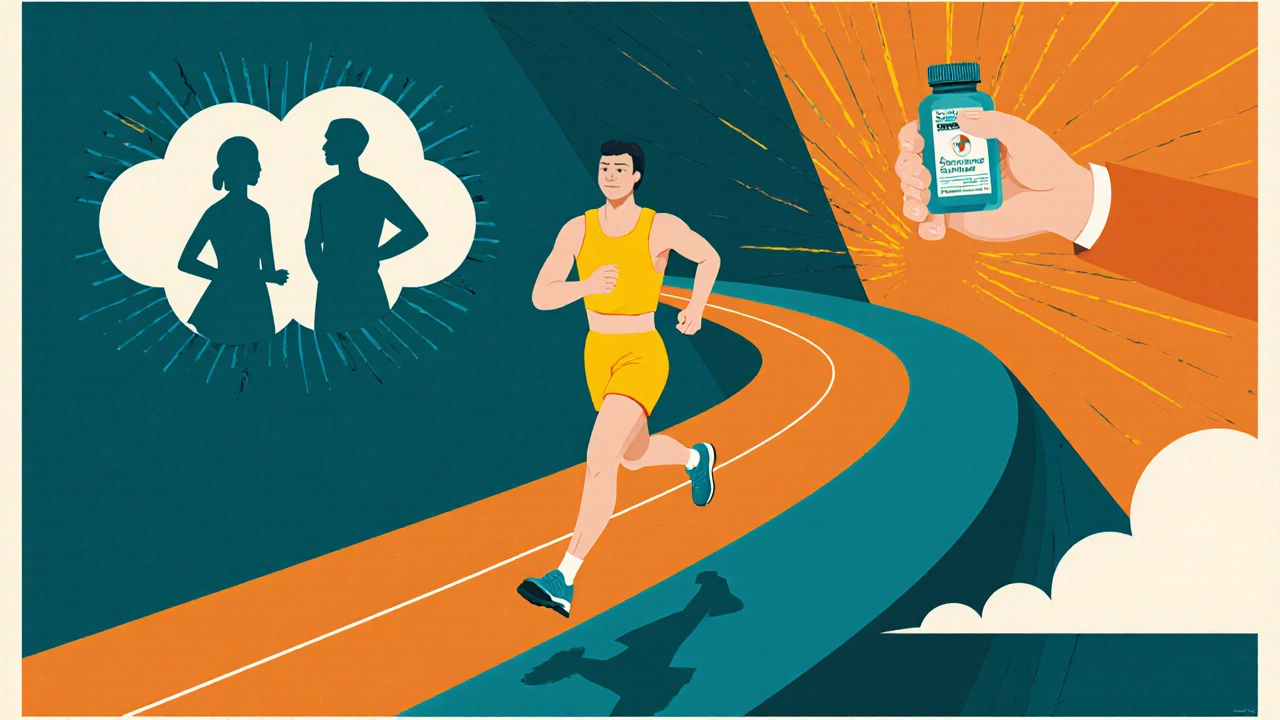
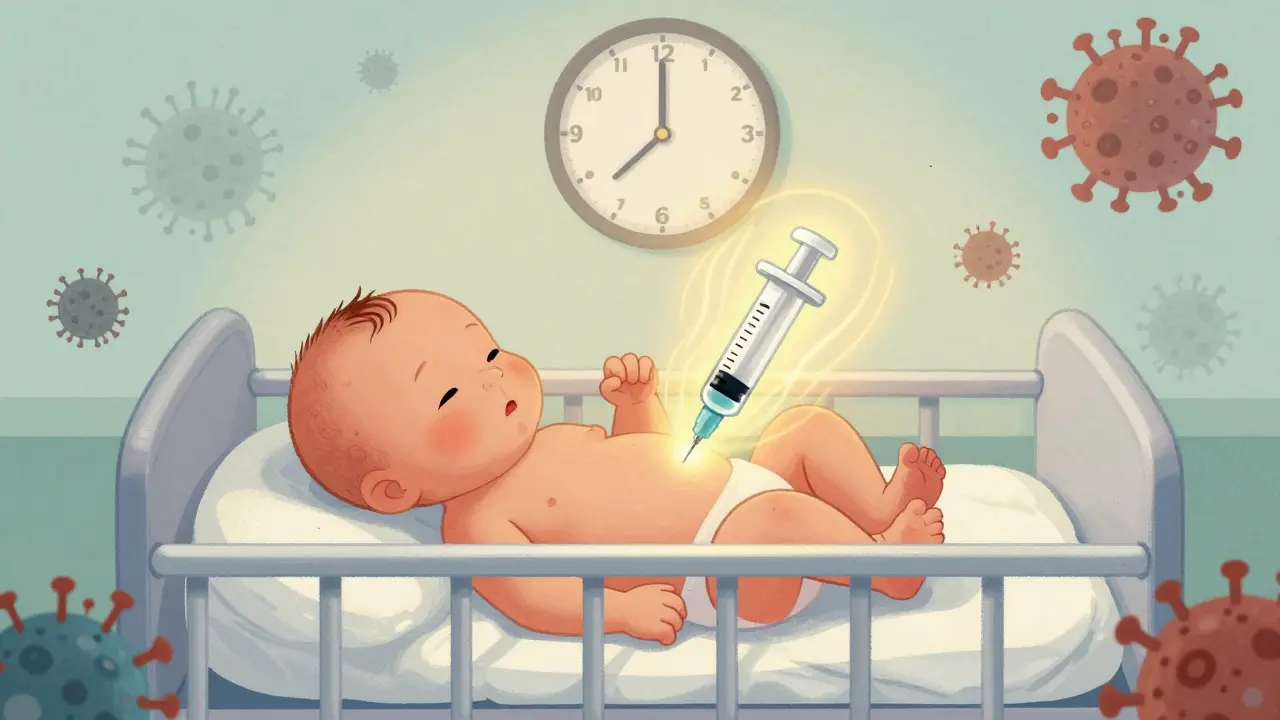
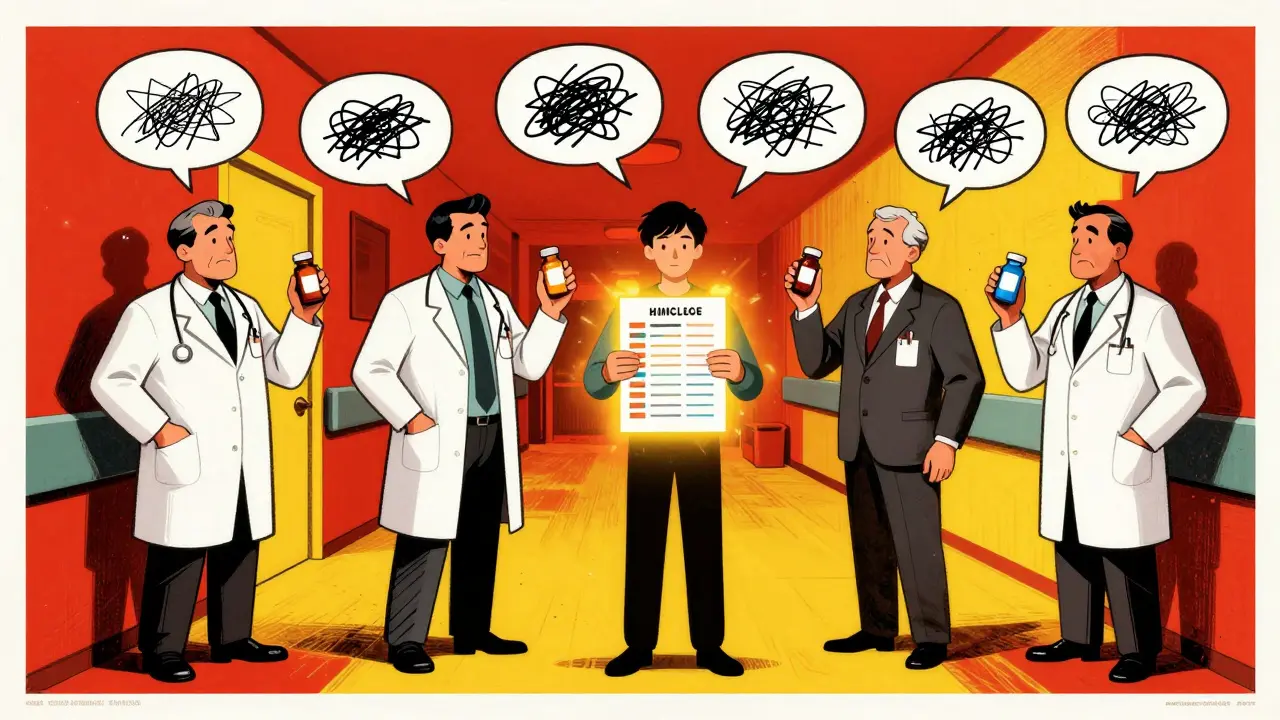

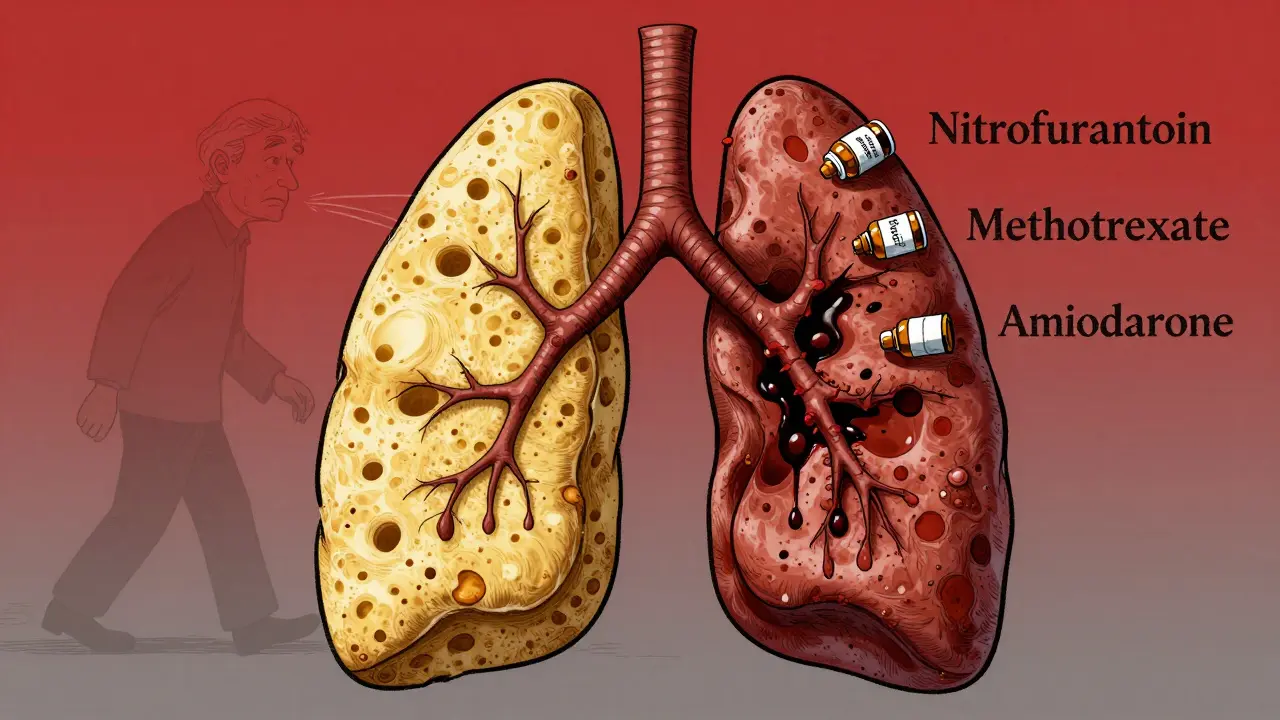
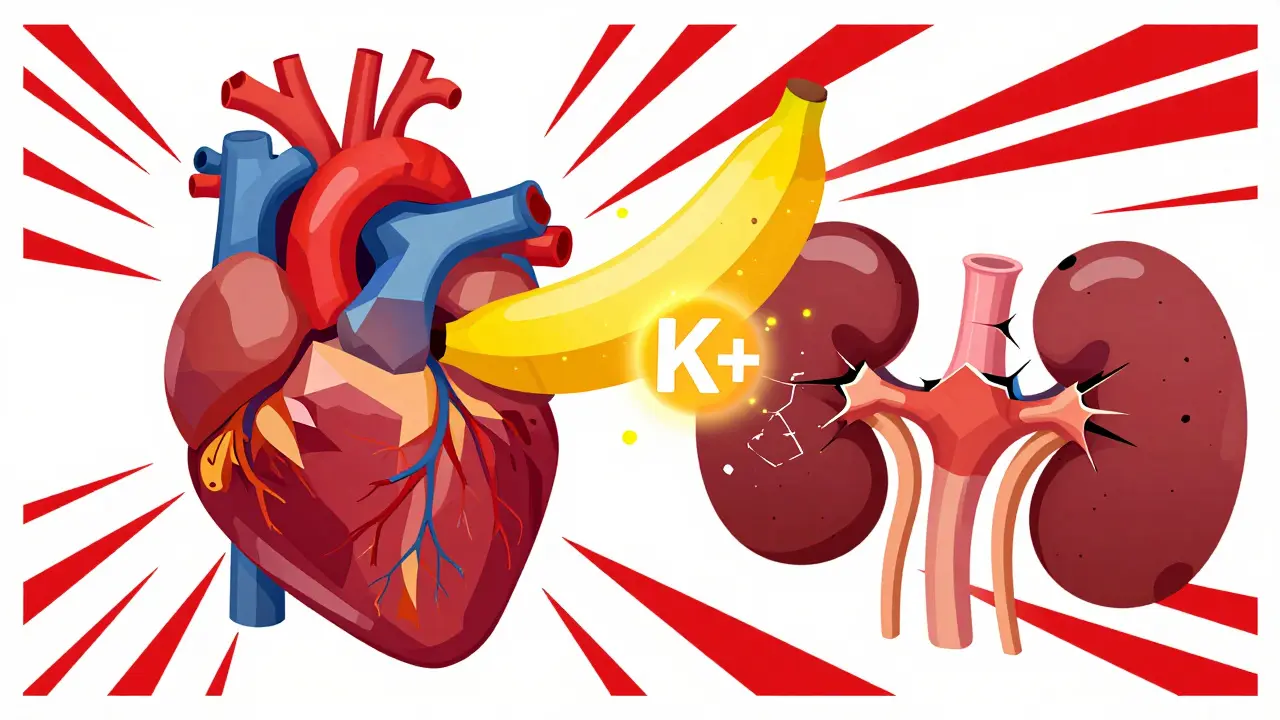
Karla Johnson
October 18, 2025 AT 14:07Acamprosate, often marketed under the name Campral, has emerged as one of the most robust pharmacologic agents for sustaining long‑term sobriety, and the evidence supporting its use is both deep and broad. The drug’s mechanism, modulating the delicate GABA‑NMDA equilibrium, directly addresses the neurochemical turbulence that many patients experience after detoxification, and this intrinsic action sets it apart from treatments that merely block reward pathways. Clinical trials spanning over two decades consistently demonstrate that individuals who adhere to a full dosage regimen exhibit a statistically significant increase in continuous abstinence, often exceeding a 12‑percentage‑point advantage at the twelve‑month mark. Moreover, real‑world registries in diverse healthcare systems-Australia, the United Kingdom, and the United States-mirror these findings, reinforcing the external validity of the controlled study data. When we examine adherence, the literature is unequivocal: patients who take at least eighty percent of prescribed tablets are markedly more likely to remain sober, underscoring the importance of integrating robust psychosocial support alongside medication. Safety considerations further enhance acamprosate’s appeal; because the compound is predominantly renally excreted, it presents a liver‑friendly profile that is especially relevant for individuals with hepatic compromise-a common comorbidity in chronic alcohol use disorder. Side effects such as mild gastrointestinal upset or transient anxiety typically resolve within the first two weeks, and serious adverse events are exceedingly rare. From a practical standpoint, the three‑tablet‑daily dosing schedule may pose a challenge for some, yet this can be mitigated through pill organizers, mobile reminders, and comprehensive counseling. In contrast to naltrexone, which carries a risk of hepatotoxicity, acamprosate offers a safer alternative for patients whose liver enzymes are already elevated. It is also worth noting that the drug does not interfere with opioid or other psychiatric medications, enabling a more seamless integration into polypharmacy regimens. Importantly, the pharmacodynamic properties of acamprosate do not produce a euphoric “high,” which reduces the potential for misuse and aligns with a therapeutic philosophy centered on stabilizing neural circuits rather than creating new dependencies. The cumulative body of evidence, therefore, supports a clear clinical recommendation: acamprosate should be considered a first‑line adjunctive treatment for individuals who have completed detoxification and who are committed to achieving long‑term abstinence, particularly when combined with evidence‑based counseling and peer support. By addressing both the physiological and psychological facets of recovery, acamprosate embodies a comprehensive approach that maximizes the probability of sustained sobriety.
Joe Moore
October 19, 2025 AT 15:20Yo, if you think acamprosate is just another pharma push, you’re missing the big picture-there’s a whole hidden agenda behind the “research” they keep shouting about. The FDA approval in 2004 was probably rushed, and they don’t want you to know that the same labs that fund the studies also own the patents, so they definetly have a profit motive. This isn’t some benign brain‑balancer; it’s a way to keep us dependent on yet another chemical, all while the “big pharma” narrative tells us it’s the miracle cure. And guess what, they’re probably suppressing data on long‑term side effects, cuz they’re scared that the truth would ruin the whole industry’s game plan. Stay woke, don’t just swallow whatever they hand you with a smile.
Emma Williams
October 20, 2025 AT 16:20Acamprosate seems helpful for many people looking to stay sober and it works well with counseling
Stephanie Zaragoza
October 21, 2025 AT 15:56While the clinical data on acamprosate are undeniably robust, one must exercise caution,; the efficacy figures, though impressive, are derived primarily from controlled environments,; real‑world adherence, however, remains a significant variable,; clinicians should, therefore, emphasize comprehensive support mechanisms,; otherwise the pharmacologic benefit may be undermined by inconsistent dosing,; a nuanced understanding of patient-specific factors, such as renal function and psychosocial stability, is essential,; without which the therapeutic potential could be markedly diminished,; consequently, prescribing acamprosate without a thorough assessment would be, at best, a superficial approach,; at worst, a missed opportunity for optimal recovery.
James Mali
October 22, 2025 AT 15:33In the grand scheme of recovery, chemicals like acamprosate are just another tool; they echo the ancient quest for external aids, yet the true battle lies within.
Janet Morales
October 23, 2025 AT 15:10Oh sure, pop a few tablets and expect miracles-what a naive fantasy! The reality is that acamprosate is nothing more than a Band‑Aid, a fleeting comfort that masks the raw agony of withdrawal without confronting the soul‑deep trauma that fuels the addiction. You think a modest modulation of neurotransmitters can substitute for real healing? Absolutely not. The dramatic flair of clinical headlines blinds us to the quiet despair of those who, after weeks of polite compliance, find themselves staring at the same cravings, the same sleepless nights, the same hollow victories. So don’t be fooled by glossy brochures; the battle for sobriety demands far more than a three‑tablet regimen, it demands a relentless, unforgiving confrontation with one’s own demons.
Rajesh Singh
October 24, 2025 AT 14:46It is a moral imperative, dear reader, to recognize that acamprosate, when wielded responsibly, becomes a beacon of hope amidst the murky seas of alcoholism; its gentle yet resolute action on the GABA‑NMDA interplay exemplifies the very harmony we must strive for in our own lives. By embracing this medication, we are not merely taking a pill-we are affirming a commitment to dignity, to self‑respect, and to the noble pursuit of health. Let us celebrate the scientific marvel that offers a lifeline to those battered by the relentless tide of cravings, and let us, with vibrant conviction, champion its integration into a compassionate, holistic care model.
Albert Fernàndez Chacón
October 25, 2025 AT 14:23The data suggests that acamprosate can improve abstinence rates, especially when paired with psychosocial interventions; it’s a low‑risk adjunct that targets glutamatergic dysregulation, which is often overlooked in standard counseling protocols.
Drew Waggoner
October 26, 2025 AT 13:00Acamprosate’s hype overlooks the deeper issues.
Mike Hamilton
October 27, 2025 AT 12:36It’s interesting how acamprosate, despite its modest side‑effect profile, often gets eclipsed by louder narratives about naltrexone; perhaps we need to reexamine the balance between efficacy and safety, and not let the louder voices drown out the quieter yet valuable options.
Matthew Miller
October 28, 2025 AT 12:13Wow! Acamprosate is a game‑changer! It stabilizes the brain, kicks cravings to the curb, and lets you focus on rebuilding your life-pure motivation in a bottle!
Liberty Moneybomb
October 29, 2025 AT 11:50Listen up, folks-while the glossy ads sing praises of acamprosate, the shadowy powers behind the curtain are pulling strings, ensuring we stay hooked on their “solutions” while they harvest our data, manipulate outcomes, and keep the true cure hidden from the masses. The drama is real, the stakes are high, and the truth will out-if we dare to look beyond the polished headlines.
Alex Lineses
October 30, 2025 AT 11:26For anyone considering acamprosate, remember that medication is just one piece of the puzzle; combine it with supportive therapy, community resources, and a solid relapse‑prevention plan, and you’ll give yourself the strongest possible foundation for lasting recovery.